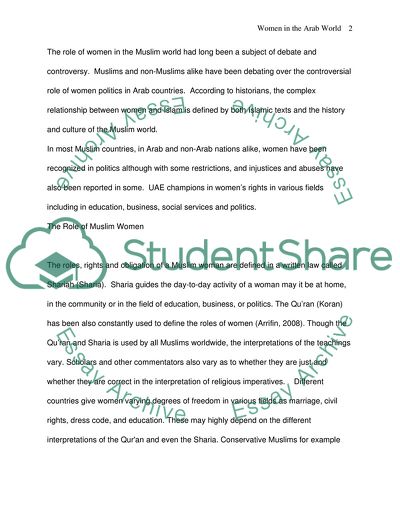Cite this document
(The Role of Women in the Muslim Countries Term Paper, n.d.)
The Role of Women in the Muslim Countries Term Paper. Retrieved from https://studentshare.org/culture/1728703-women-in-the-arab-world
The Role of Women in the Muslim Countries Term Paper. Retrieved from https://studentshare.org/culture/1728703-women-in-the-arab-world
(The Role of Women in the Muslim Countries Term Paper)
The Role of Women in the Muslim Countries Term Paper. https://studentshare.org/culture/1728703-women-in-the-arab-world.
The Role of Women in the Muslim Countries Term Paper. https://studentshare.org/culture/1728703-women-in-the-arab-world.
“The Role of Women in the Muslim Countries Term Paper”, n.d. https://studentshare.org/culture/1728703-women-in-the-arab-world.


